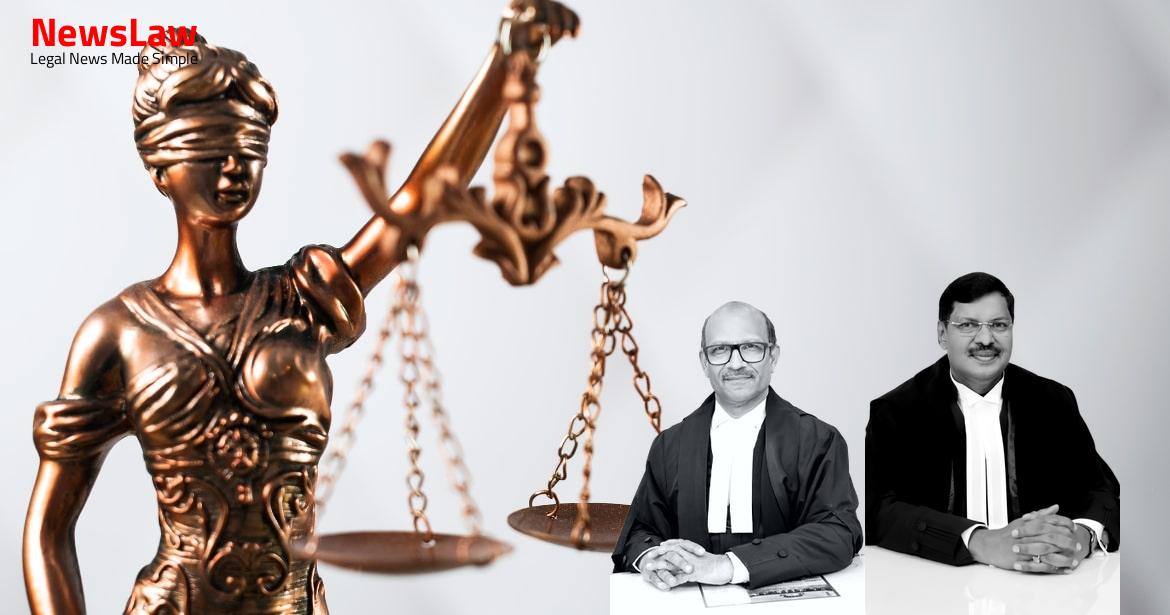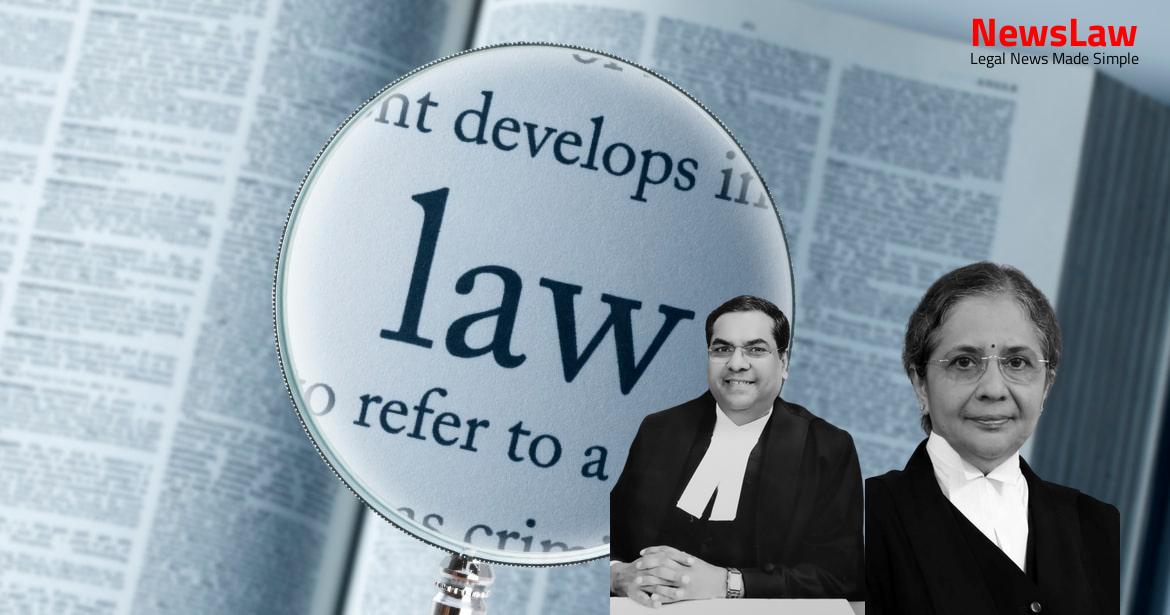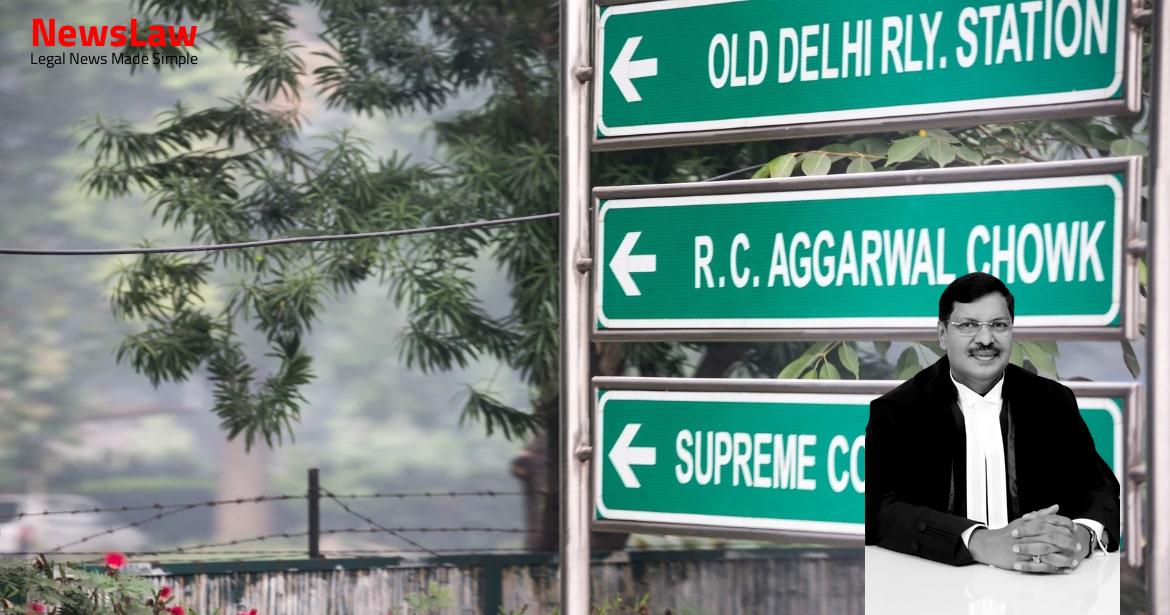In a significant legal battle, the Supreme Court of India has delivered a judgement in the case of C. Subbiah @ Kadambur Jayaraj and Others vs. The Superintendent of Police and Others. The case revolves around a fraudulent land deal where the complainant, a government teacher, accused the defendants of cheating him out of profits and plots promised to him. The court’s decision sheds light on the intricacies of criminal breach of trust and the Benami Transactions (Prohibition) Act. Let’s delve into the details of this landmark ruling.
Facts
- Complainant invested in real estate business based on accused persons’ claim of political connections.
- Accused induced complainant to invest in lands with promises of high profits.
- Accused conspired to cheat complainant by not giving him due share of plots.
- Complainant invested Rs. 1,01,47,800 in the land deal while accused invested lesser amounts.
- Accused threatened and abused complainant when questioned about fraudulent acts.
- Accused transferred properties to other investors fraudulently.
- Complainant filed complaint in court and police against the accused for criminal breach of trust.
- Accused failed to act as promised under a settlement deed, leading to breach of trust.
- Accused coerced complainant to involve in land deals with fraudulent intentions.
- Despite various complaints and court interventions, FIRs against accused were not registered.
- The Single Judge of Madras High Court dismissed the petition by the appellants.
- The order was dated 23 April, 2018.
- The appellants have challenged this order in the current appeal by special leave.
Also Read: Quashing of FIR No. 590 of 2019: Barkat Ali v. State of Chhattisgarh
Arguments
- Learned senior counsel argued that there is no evidence to show the intention of the accused to defraud the complainant at the beginning of the transactions.
- The essential elements of the alleged offenses are claimed to be lacking in the complainant’s allegations.
- The accusation of disproportionate profit sharing does not constitute criminal breach of trust according to the senior counsel.
- The complainant, a government teacher, engaged in property deals at his own risk and misused criminal law when dissatisfied with profit sharing.
- The senior counsel believes the dispute between the parties is purely civil, and continuing criminal proceedings would be an abuse of the legal process.
- The respondent complainant and the State vehemently opposed the submissions of the appellants.
- It was argued that the accused appellants gained the trust of the complainant through fraudulent means and induced him to invest in land deals.
- The complainant, being a Government teacher, was promised shares of profits or plots in the land deals which were purchased in the name of the accused.
- The complainant trusted the assurances given by the accused and invested significant amounts of money.
- However, the accused failed to fulfill their promises, leading to the complainant being defrauded and not receiving his rightful share of profits or plots.
Also Read: Contract Chaos: Municipal Committee Katra vs. Ashwani Kumar Battle in Court
Analysis
- The complainant had been involved in real estate business before becoming a government teacher in 2007.
- A Memorandum of Settlement dated 19.7.2010 indicated that the accused had to release land after payment, but this was not executed by the accused.
- The complainant alleged that the accused fraudulently convinced him to buy land and register it in the names of the accused, but these were benami transactions.
- The Benami Transactions (Prohibition) Act 1988 was referenced in relation to the transactions.
- Despite involvement in land deals, the complainant could not pursue civil proceedings due to the Benami Act.
- The accused had passed on some plots and profits to the complainant, but disputes arose over the quantification of profits and full satisfaction of the complainant’s claimed share.
- The court warned against converting civil disputes into criminal cases and suggested civil court as the appropriate venue for such disputes.
- Section 4(1) of the Benami Act prohibits suits, claims, or actions in relation to benami properties against the person in whose name the property is held.
- No enforcement of rights in benami properties can be done against the alleged real owner.
- Exceptions include cases where the property is held for the benefit of coparceners in a Hindu undivided family or where it is held by a trustee for the benefit of another person.
- Benami transaction defined in Section 2(a) involves property transferred for consideration provided by another person.
- Section 2(c) defines ‘property’ broadly to include various types of assets and interests.
- Section 3 of the Benami Act was declared unconstitutional in a previous case.
- The accused is alleged to have used abusive language against the complainant, but this would not fall under Section 294(b) of the IPC.
- Civil law remedies are seen as time-consuming and not fully protective of lenders’ interests.
- Criminal prosecution for breach of contract requires showing of fraudulent or dishonest intention.
- Merely failing to fulfill a promise does not automatically lead to criminal proceedings.
- Criminal courts should exercise caution in cases primarily of civil nature.
- Using criminal prosecution to settle civil disputes is discouraged.
- Allegations in the complaint and charge sheet do not support offences under Section 406 and 420 IPC against the appellants.
- A purely civil dispute has been transformed into a criminal prosecution based on allegations of fraud and breach of trust.
- Acceptance of the contention by learned counsel for accused appellants that the prosecution is an abuse of process of law due to a frivolous FIR.
- Criminal prosecution against accused appellants is deemed an abuse of process when the allegations do not constitute an actionable civil wrong.
- Allowing prosecution of accused appellants for the same set of facts as in the civil case would be an abuse of the legal process.
- Section 4 of the Benami Act bars the complainant from suing accused appellants for the same set of facts in both civil and criminal proceedings.
Also Read: Jagvir Singh v. State of Uttar Pradesh: Acquittal on Benefit of Doubt
Decision
- Proceedings against the appellants in pursuance of the charge sheet dated August 10, 2011 are quashed.
- Impugned order dismissing the petition filed by the appellants seeking quashing of the Criminal Case No 250 of 2012 and FIR No 305 of 2011 is quashed and set aside.
- The appeal is allowed accordingly.
- Pending application(s), if any, shall stand disposed of.
Case Title: C. SUBBIAN @ KADAMBUR JAYARAJ Vs. SUPERINTENDANT OF POLICE
Case Number: Crl.A. No.-002582-002582 – 2024



